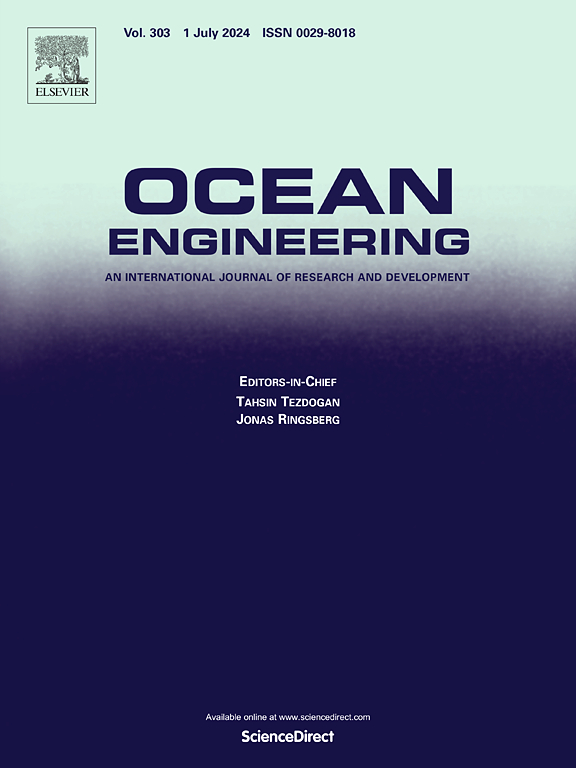具有系统不确定性和干扰的自主水下航行器面向任务的自适应潜水跟踪控制
IF 4.6
2区 工程技术
Q1 ENGINEERING, CIVIL
引用次数: 0
摘要
实现自主水下航行器(auv)在垂直平面上的高精度运动控制需要有效的路径规划和鲁棒的轨迹跟踪。传统方法将这两个模块分开处理,这可能导致不可行的跟踪轨迹和次优控制性能。为了解决这些问题,本文提出了一种面向任务的自适应潜水跟踪控制(ToADTC)框架,该框架将控制器约束集成到规划过程中,同时在轨迹跟踪过程中精炼期望的轨迹。通过从任务级角度定义优化问题,期望轨迹不再预先规定,而是可以与跟踪回路内的控制输入信号一起优化。在优化环中加入了压缩鲁棒性约束,保证了优化问题的鲁棒性和可行性。同时,采用Lyapunov方法严格保证了AUV系统的闭环稳定性。通过大量的仿真验证了该方法的有效性,并将其与传统控制方法进行了比较。结果表明,ToADTC方法提高了对扰动的鲁棒性,提高了复杂水下环境下的整体控制性能。本文章由计算机程序翻译,如有差异,请以英文原文为准。
Task-oriented adaptive dive tracking control for autonomous underwater vehicle with system uncertainties and disturbances
Achieving high-precision motion control for Autonomous Underwater Vehicles (AUVs) in the vertical plane requires both effective path planning and robust trajectory tracking. Traditional approaches treat these two modules separately, which can lead to infeasible tracking trajectories and suboptimal control performance. To address these limitations, this paper proposes a task-oriented adaptive dive tracking control (ToADTC) framework, which integrates controller constraint into the planning process while simultaneously refining the desired trajectory during trajectory tracking. By defining the optimization problem from the task-level perspective, the desired trajectory is no longer prescribed in advance but can be optimized together with the control input signals within the tracking loop. Moreover, a contracted robustness constraint is incorporated into the optimizing loop, ensuring both the robust control performance and feasibility of the optimization problem. Meanwhile, the Lyapunov method is employed to guarantee the closed-loop stability of the AUV system rigorously. The proposed method is validated through extensive simulations, comparing its performance with conventional control approaches. The results demonstrate that ToADTC method improves robustness against disturbances, and enhances overall control performance in complex underwater environments.
求助全文
通过发布文献求助,成功后即可免费获取论文全文。
去求助
来源期刊

Ocean Engineering
工程技术-工程:大洋
CiteScore
7.30
自引率
34.00%
发文量
2379
审稿时长
8.1 months
期刊介绍:
Ocean Engineering provides a medium for the publication of original research and development work in the field of ocean engineering. Ocean Engineering seeks papers in the following topics.
 求助内容:
求助内容: 应助结果提醒方式:
应助结果提醒方式:


